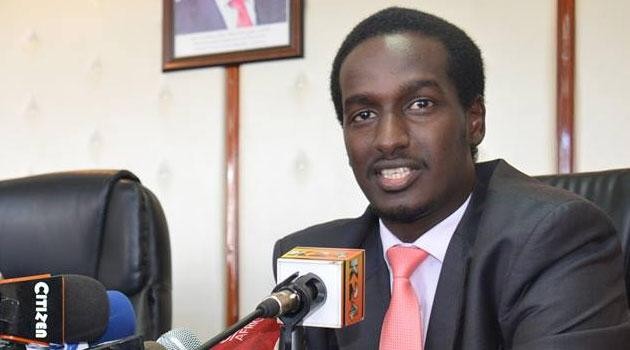
The rules which are in line with the Private Security Regulation Act 2016, have also created the Private Security Regulatory Authority (PSRA) headed by Fazul Mohamed (pictured) /FILE
NAIROBI, Kenya, Oct 29 – Three Private Security Industry Associations now say they need more time to comply with security regulations which were gazzetted by the government on July 15.
The Kenya Security Industry Association (KSIA), Protective Security Industry Association (PSIA) and Protective and Safety Association of Kenya (PROSAK) told a parliamentary committee on Tuesday private security firms will need adjustments is arming of the guards.
While appearing before the National Assembly Delegated Legislation Committee chaired by Uasin Gishu Women Representative Boss Sholei, PROSAK Chairperson Cosmas Mutava said the industry is not ready to provide firearms to the guards because most of them are not trained on how to use them.
“We have more than five hundred thousand employees who need to be trained and now we are left with only two months ad as we are all aware, December is a festive month we might not be able to do anything in terms of training. We really need time to adjust and know exactly how to go about it,” Mutava said.
“If indeed the guards were to be armed, we also need to know how those guns will be acquired. Are we going to procure them or are we going to lease them from the government? So, madam chair and members as an industry we need like 5 years to comply with all the regulations.”
Mutava and his counterpart from the umbrella body, Enock Makanga, said security firms they represent are opposed to the implementation of the regulations citing failure by government to undertake public participation before publishing the guidelines.
Further, Mutava and Makanga argued that the minimum salary set out by the government in the new regulations is too high for them to sustain. The regulations set the minimum salary at Sh30,000.
Kenya National Private Security Workers Union’s Isaac Andabwa however said the guards need to be armed for their safety in case of emergencies such as terror attacks.
He emphasized the need for better remuneration for private guards.
“One an organization is attacked, or an emergency happens, the guards are always the first ones to lose their lives. They risk their lives while providing security to all of us who need them. They need to be safe. We cannot put on hold reforms which some of us sacrificed our jobs to fight for them. They need to be implemented as soon as possible,” Andabwa stated.
Interior Principal Secretary Karanja Kibicho, who also attended the meeting, said the six-month compliance period can be negotiated but only a reasonable extension will be granted.
The regulations gazetted on July 15 by Interior Cabinet Secretary Fred Matiangi will also see guards aid police in quelling riots and get involved in provision of security during elections.
The guards will be allowed to ride in armored and rapid response vehicles and blare sirens.
The private guards are expected to enjoy these privileges under the guidance of the Inspector General of Police.
The rules which are in line with the Private Security Regulation Act 2016, have also created the Private Security Regulatory Authority (PSRA) headed by Fazul Mohamed.
The government has maintained that the regulations have come in force in order to maintain law and order, handle national disasters and provide general expertise in the entire security sub-sector.









































